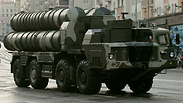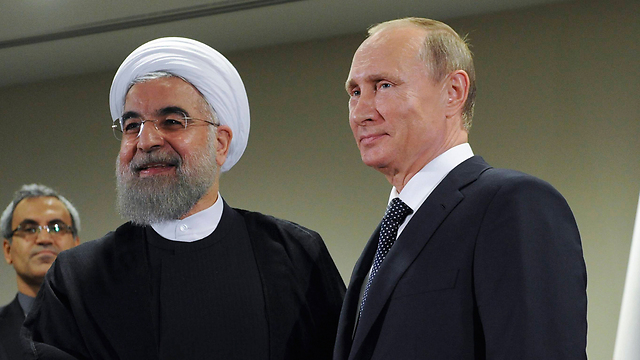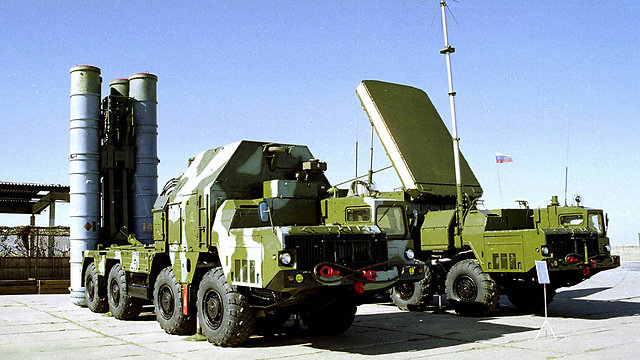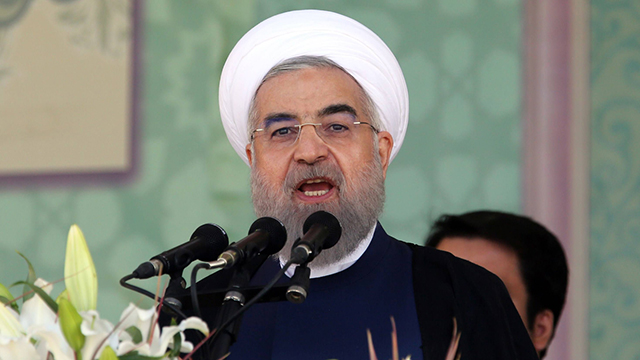Most of the economic sanctions imposed on Iran will be removed on Friday, US State Department officials said, while Russia readies the sale of advanced weapons to the Islamic Republic.
January 15 will mark the end of the international sanctions regime, which has been in place since 2007 through a series of decisions by American Presidents George W. Bush and Barak Obama, legislation passed by the US Congress and in the European Union, and resolutions passed by the UN Security Council. These sanctions were put in place in an effort to hinder and thwart Iran's nuclear program.
The American administration and the EU have already begun preparing the public for the diplomatic move: US Secretary of State John Kerry and his European counterpart, EU foreign policy chief Federica Mogherini, have announced over the past few days that the lifting of the sanctions would be done "in a matter of days."
The decision to lift the sanctions is based on a report from IAEA inspectors submitted to world powers last month that confirmed Iran was indeed meeting its commitments to dismantle its nuclear capabilities, in accordance with the agreement it signed with the P5+1 group of nations - the US, the UK, China, France, Russia, and Germany.
$21 billion worth of weapons
In light of the impending lifting of the sanctions, the regime in Tehran announced it plans on rehabilitating the outdated Iranian military, which desperately needs to update and upgrade its weapons systems.
The first country to get in line to do business with Iran is Russia.
A security delegation from Moscow is in the process of finalizing talks with the Iranian government, which began in March 2015, on the sale of Sukhoi Su-30 fighter jets (considered the counterpart of the American F-15 jets) and advanced Yakhont (P-800 Oniks) anti-ship cruise missiles to Tehran.
Iran and Russia are also discussing the possibility of including in the arms deal advanced T-90 tanks, currently used by Russian forces in Syria.
In addition, the two nations discussed restarting the production line of T-72 tanks, which were built by the Russians in Iran in the past.
Next month, Iran will receive the first shipment of the advanced aerial defense system S-300. The Iranians had purchased four units of the anti-aircraft S-300 system, which were removed from service in the Russian military, and have already received all of the supporting systems at the end of 2015, including the radar system.
Also in line are the French, who are negotiating the sale of Dassault Rafale fighter jets with the Iranians.
Bolstering Rouhani
The EU and the US are in a rush to lift the sanctions because of the Iranian elections in February. The White House believes removing the sanctions, and the flow of cash expected as a result, could help bolster President Hassan Rouhani against the hardliners being supported by the Revolutionary Guard Corps.
Senior Israeli officials, meanwhile, have accused the American administration of ignoring - knowingly and intentionally - the military aspects of the sanctions removal, saying Washington did not put any pressure on the Iranians on the development of strategic weapons - like long-range ballistic missiles capable of carrying a nuclear warhead.
The Iranians, it turns out, conducted two tests of ballistic missiles with a range of 1,800 kilometers, and even presented an underground depot of these missiles.
Iran has been barred of arming itself with missiles that can carry unconventional warheads in the framework of the international agreements it signed. Despite that, the American administration rejected Congress' demand to condition the removal of the sanctions on supervision over the manufacturing of ballistic missiles in Iran.
Israel views the public missile experiments conducted in recent months by Iran as a move meant to test international reaction - particularly the American one. President Obama's decision not to press Tehran on this issue encourages the Iranians to continue chipping away at these international agreements meant to prevent the spread of nuclear weapons.
By the way, it's unclear whether putting this issue on the UN Security Council's table would do any good: The Russians have already said they would veto any decision on Iran's ballistic missiles program.





















